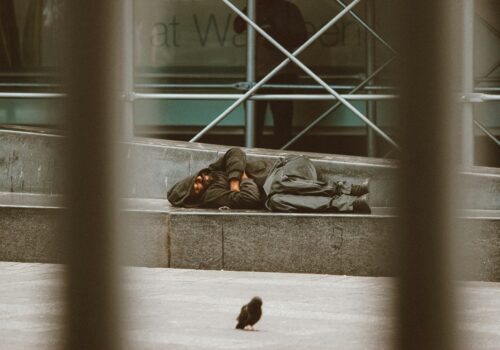It’s time for student nurses to be compensated properly
Words: Katie Gartland
As COVID-19 cases spiral out of control in Ireland, 169 people currently reside in intensive care units across the country and with the daily death rate increasing at an alarming rate the healthcare system faces being overwhelmed by the end of the month. Under normal circumstances, student nurses have long provided a selfless, stable and cheap form of labour to prop up an understaffed health service. However, with the lives of hundreds of people and their own wellbeing at risk, the stakes are higher than ever – and many are now providing this vital support without any pay.
Áine McCarthy, a fourth year nursing student and Irish Nurses and Midwives Organisation (INMO) officer for her year group has just started the first week of her internship. She explained that back in March, during the onset of the pandemic, all first, second and third year students (Supernumerary) student nurses were removed from hospitals. However, due to staffing shortages many were offered paid positions as Health Care Assistants and the hours completed could contribute towards their placement in recognition of the work they were doing.
Meanwhile, she noted student nurses in their fourth year continued their college internships and were being paid €10.70 per hour, eventually rising to €14 in the Spring after the inequality in pay and heightened danger of COVID infected hospitals was highlighted.
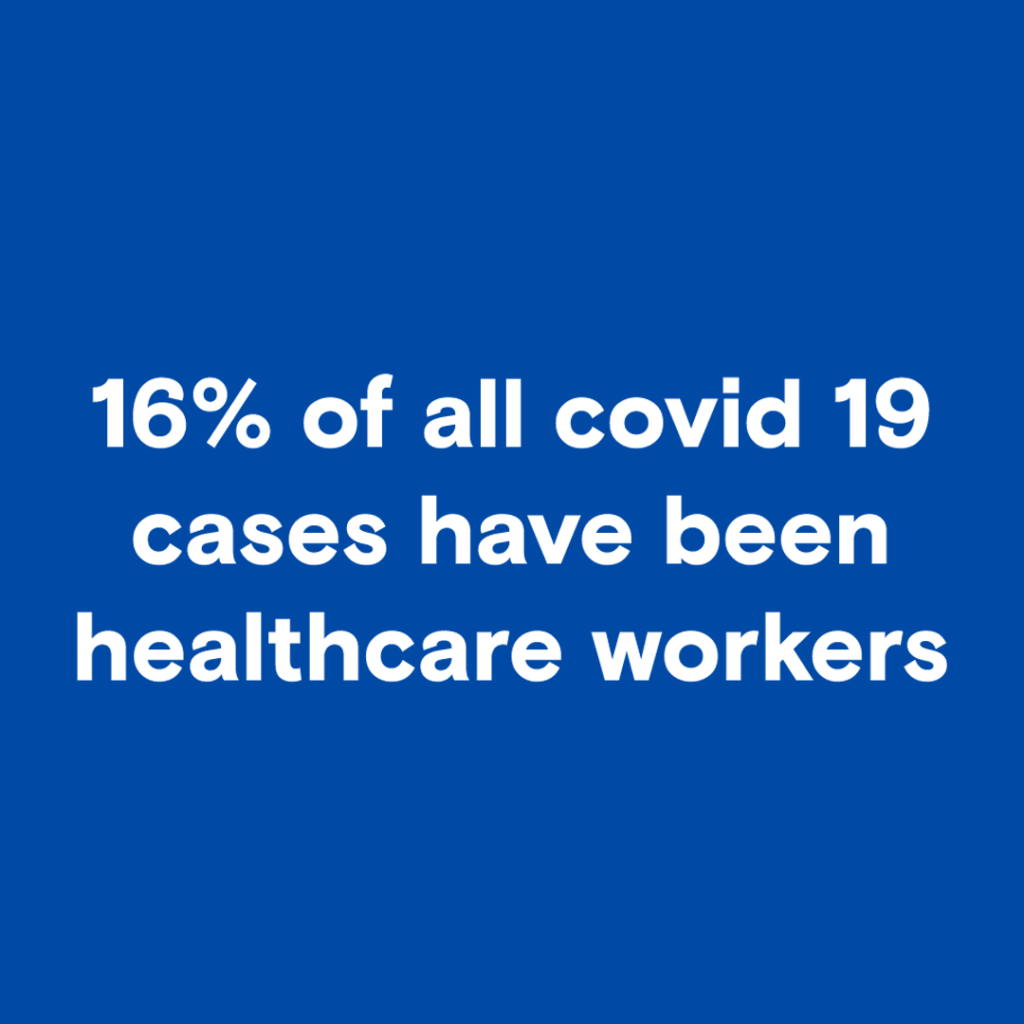
The risk posed for nurses during the first wave was pronounced with the number of daily cases peaking at 1,515. However, since returning in September, cases have risen to a terrifying daily peak of 7,836 and instead of being compensated to reflect the increasing danger, the supernumerary students have been expected to continue their 35 hour a week placements without being paid. Coupled with the fact that they’ve been stopped from doing the shift work they picked up during the first wave due to potential cross-contamination it’s resulted in a workforce that is broke, demoralised and burnt out before they have even graduated.
Áine noted that because of the current circumstances many supernumerary students have been left without an independent form of income with only a few students qualified for the Pandemic Unemployment Payment.
Meanwhile, final year students like Áine have had their compensation reduced back down to the pre-pandemic wage despite the heightened risk.
In November, the Minister for Health Stephen Donnelly appointed Professor Tom Collins as an independent reviewer of the situation with student nurses following a dispute between the HSE and INMO. Professor Collins made an analysis and gave recommendations on how the issue should be brought forward.
The reviewer’s report, which was published on January 4, stated that supernumerary students should be paid €100 per week. The €100 would be additional to the transport, SUSI and PUP grants some students are already accessing. Supernumerary nurses do three 13 hour shifts a week while they’re on placement. Under the new recommendations, they’d make about €2.80 per hour.
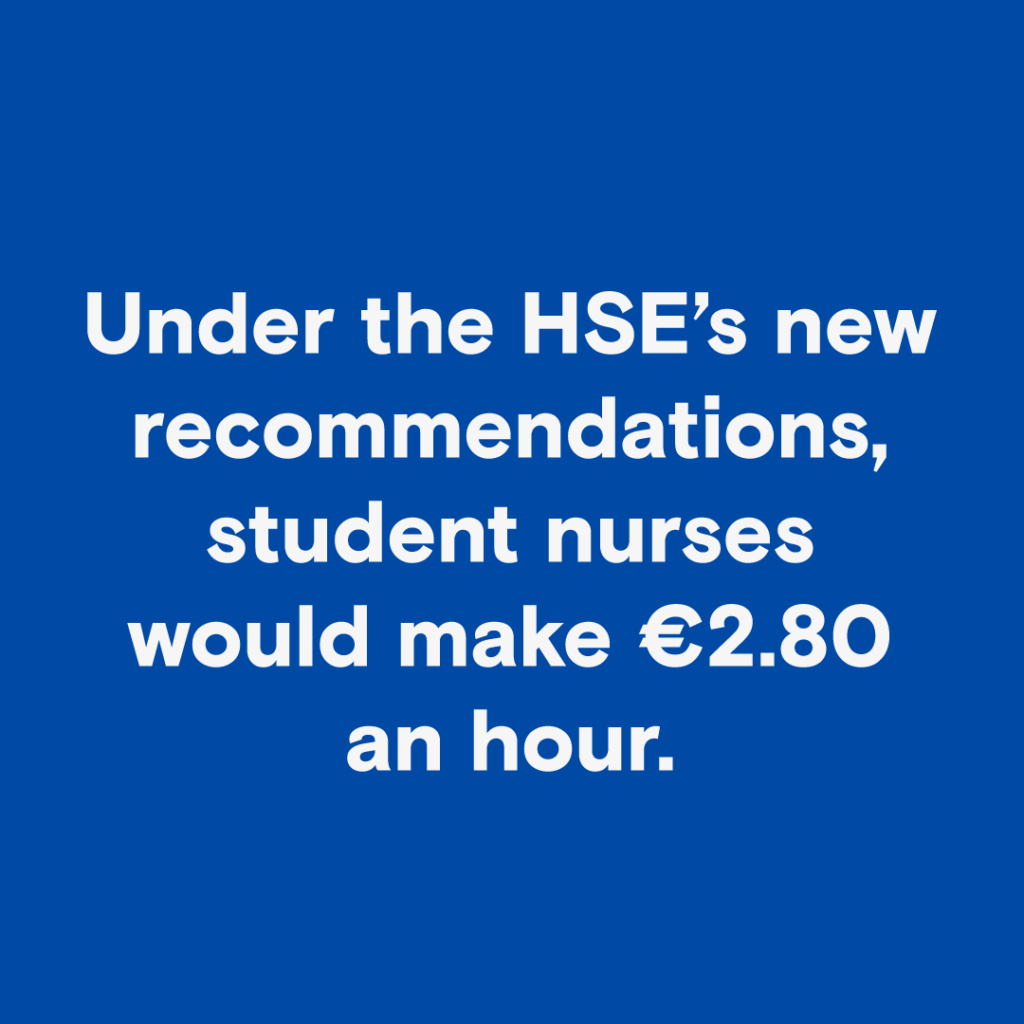

Áine stressed that the report took place before the current Covid 19 surge, in November. She said it “was conducted in a completely different context to the one we are now in. Which is a crisis situation. The country is stopping, elective surgery is stopping -the regular day-to-day runnings of the hospital that are essential to keeping people well. There aren’t enough beds, there’s not enough space to carry out normal procedures. Student nurses are in a position where they’re working in a crisis situation in the midst of a global pandemic, being placed at risk.”
“I’ve always felt like I’m a constant carrier, even if that’s not true, it’s just this perpetual fear that you’ll spread it or give it to someone you love.”
Áine McCarthy, nursing student and INMO officer.
In a statement made in response to the report, the INMO said that it “does not reflect the high-Covid risk Irish hospitals now pose, nor the work they will be asked to do in the coming weeks and months”.
She hopes that the Minister will introduce the same measures as last March; interns will be paid €14 per hour and supernumeraries won’t have to continue placement if they feel at risk.
Áine spoke about the anxiety she feels working in a hospital since the start of the pandemic. “I feel like I’ve lived in chronic fear in the past 10 months of giving this virus to someone because you know that you’re working with it. I’ve always felt like I’m a constant carrier, even if that’s not true, it’s just this perpetual fear that you’ll spread it or give it to someone you love.”



Alice (whose name has been changed at her request), is a fourth year nursing student who echoed Áine’s concerns via Zoom. Last May, when she was a supernumerary student, Alice took up a HCA contract in an ICU ward for 6 weeks. While working, she lived at home with her family but many other nurses, who could afford to, moved out in order to reduce their close contacts.
Alice plans to move to Australia after graduating. She explained that the treatment of student nurses in Ireland, which has left them feeling underappreciated and overworked, has led many of them to emigrate in order to find better wages and lifestyles while working as nurses. “The question isn’t ‘would you emigrate?’ It’s ‘where are you going after you graduate?’ The retention issue is massive”.
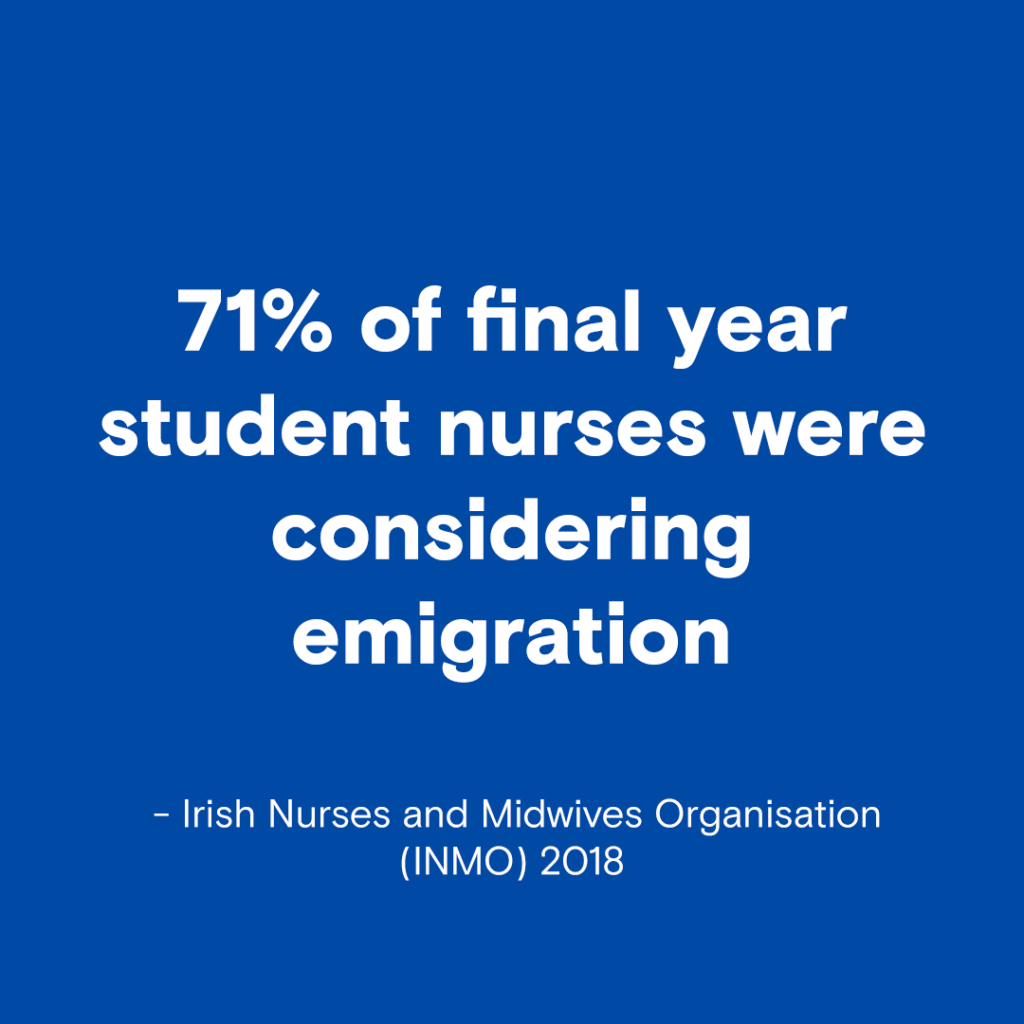

She explained the reason why she was told student nurses don’t receive a wage in Ireland. It’s to protect their learning so they’re not used as staff when a ward is under pressure.
“My learning hasn’t been protected over the past four years”, she exclaimed, “even pre-pandemic… the staff is always short so having students there makes up for staff shortages”.
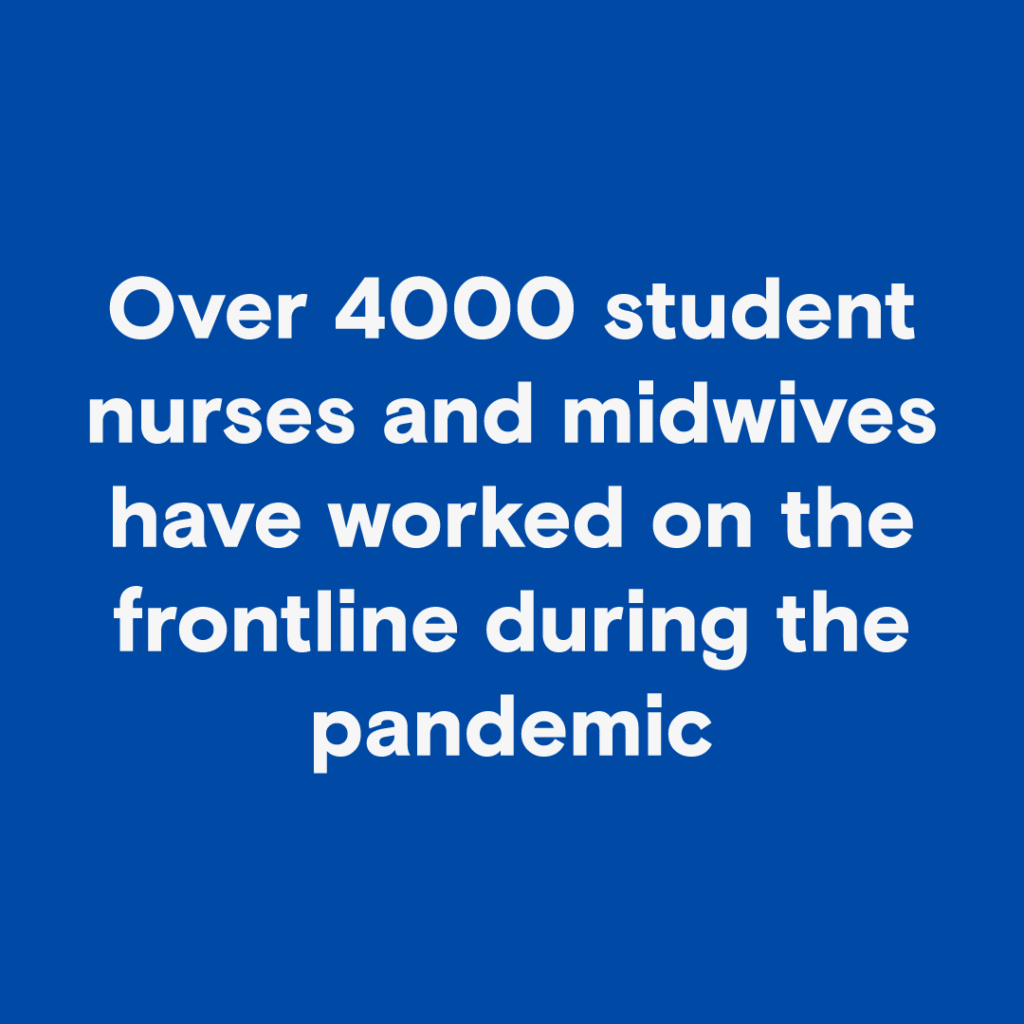

Today, January 14 saw 1,792 patients in hospital with Covid 19. Student nurses are working through extremely stressful and high-risk situations. “In some hospitals there’s too many Covid wards to not have students on them. There’s no way to avoid Covid if you’re on placement now”.
Putting yourself at risk of catching COVID-19 or spreading it to a loved one all while being underappreciated, undervalued and at the crest of an unprecedented wave of cases is subsequently resulting in a generation of students at breaking point. The extreme anxiety and financial strain amongst students who have been the backbone to many hospitals during the pandemic is leading many to reconsider their place in university, Ireland and for some – their career. The HSE needs to begin properly appreciating student nurses for their work, they must be paid as frontline workers, as they were at the start of the pandemic.
Click here to find your local TD and send an email to raise your concern.



